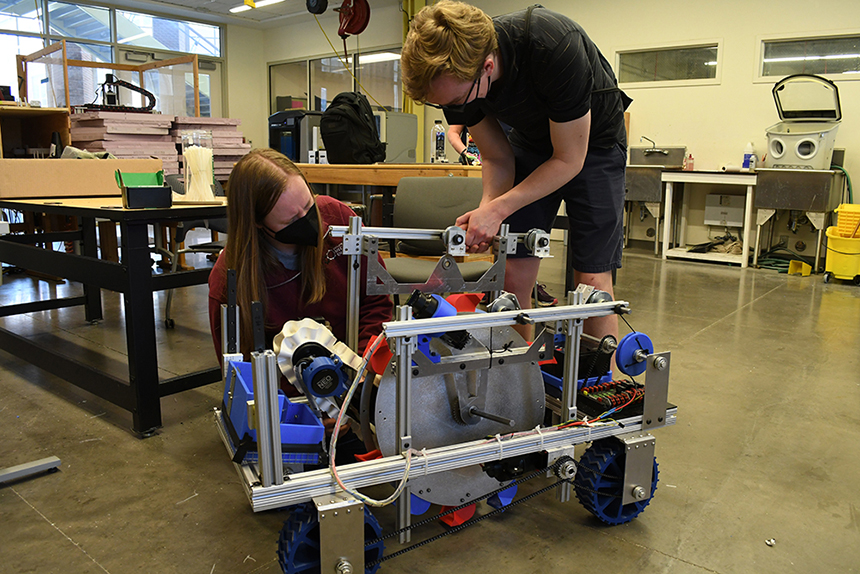Professor Tom Howard and UR Robotics Students aim high at NASA robotics competition

The robotics team from the University of Rochester will put months of work and several all-nighters on the line at Kennedy Space Center during May 23-27.
The students will send their automated mining robot into a replica lunar landscape, testing it against 47 university teams from across the country, during the annual NASA (National Aeronautics and Space Administration) Lunabotics competition. This year’s competition simulates the space agency’s upcoming Artemis mission to the moon.
“We have been aiming high to have a fully autonomous robot,” says team co-captain Francesca Daszak ’23, a mechanical engineering major and president of the UR Robotics student organization. “It’s not required, but it’s very highly encouraged.”
Autonomous means that the robot must navigate on its own, sensing any obstacles in its path without any input from team members. A depth-sensing camera is used to sense the obstacles and map the environment. Then, the robot will autonomously navigate this environment using planning algorithms to reach the mining zone. The robot must dig far enough into the surface to retrieve a payload of gravel and take it to a designated container. All the while using minimum energy—and raising a minimum of dust. (You can get a sense of the exacting NASA’s standards for this competition by glancing through the 63-page rule book.)
The students are doing this purely as an extracurricular activity—for the camaraderie, the joy of competition, and the allure of robotics.
“One of the greatest things about this is that people are all full of passion and very willing to devote their time,” says Lianming Hu ’23, of mechanical engineering. “Sometimes we stay the whole night working.”
And what better way to gain an understanding of what real-life engineering is all about? “Ultimately I think it is one of the more important things we do can on campus,” says Christopher Piatek ’23 of mechanical engineering. “Even more than some classes, where you memorize how to do equations, solve some problems, but don’t get much hands-on experience.
“This is almost like an internship. You really get to see how the entire process works.”
Read more here.
